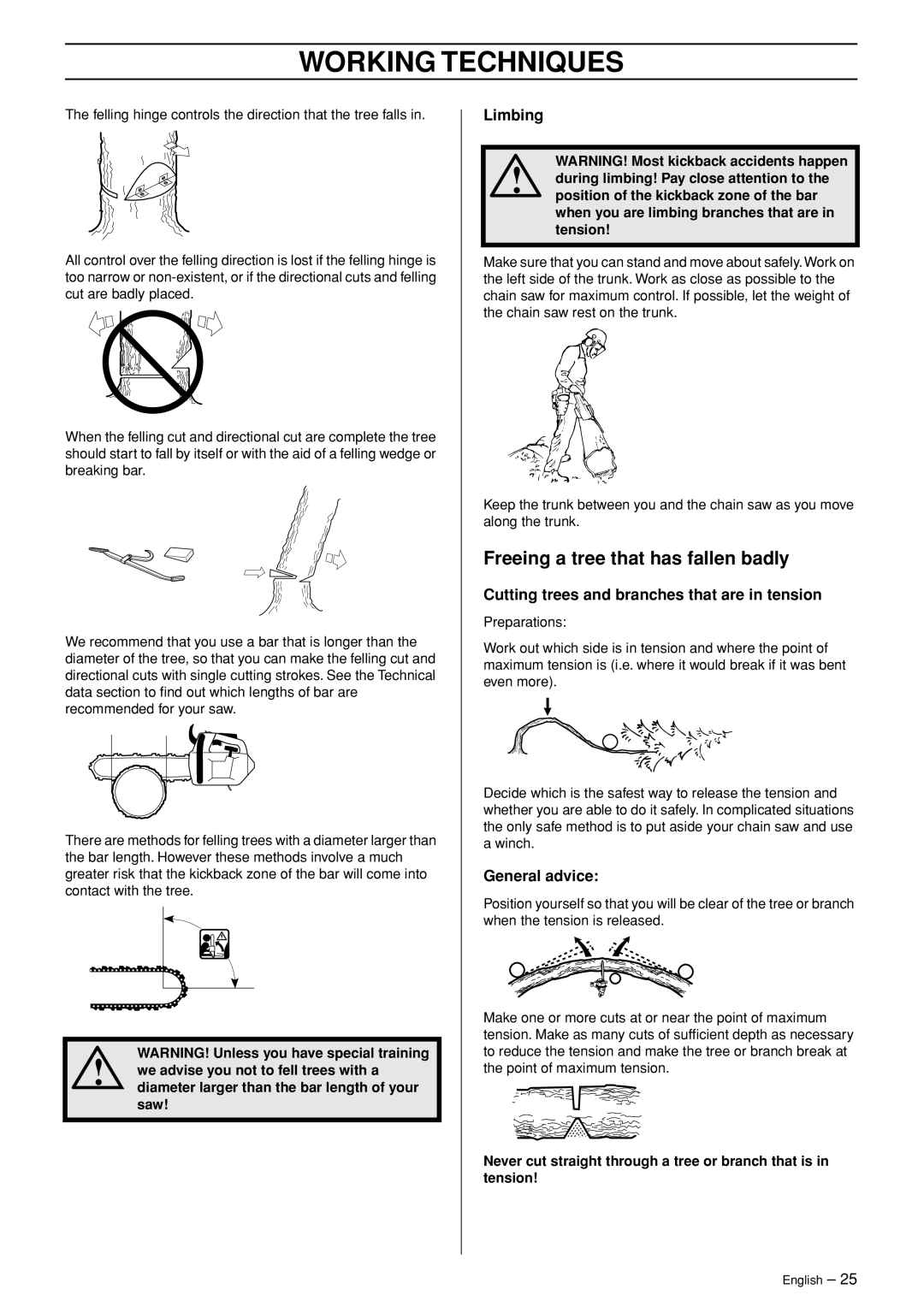
WORKING TECHNIQUES
The felling hinge controls the direction that the tree falls in.
All control over the felling direction is lost if the felling hinge is too narrow or
When the felling cut and directional cut are complete the tree should start to fall by itself or with the aid of a felling wedge or breaking bar.
We recommend that you use a bar that is longer than the diameter of the tree, so that you can make the felling cut and directional cuts with single cutting strokes. See the Technical data section to find out which lengths of bar are recommended for your saw.
There are methods for felling trees with a diameter larger than the bar length. However these methods involve a much greater risk that the kickback zone of the bar will come into contact with the tree.
WARNING! Unless you have special training
!we advise you not to fell trees with a diameter larger than the bar length of your saw!
Limbing
WARNING! Most kickback accidents happen
!during limbing! Pay close attention to the position of the kickback zone of the bar when you are limbing branches that are in tension!
Make sure that you can stand and move about safely. Work on the left side of the trunk. Work as close as possible to the chain saw for maximum control. If possible, let the weight of the chain saw rest on the trunk.
Keep the trunk between you and the chain saw as you move along the trunk.
Freeing a tree that has fallen badly
Cutting trees and branches that are in tension
Preparations:
Work out which side is in tension and where the point of maximum tension is (i.e. where it would break if it was bent even more).
Decide which is the safest way to release the tension and whether you are able to do it safely. In complicated situations the only safe method is to put aside your chain saw and use a winch.
General advice:
Position yourself so that you will be clear of the tree or branch when the tension is released.
Make one or more cuts at or near the point of maximum tension. Make as many cuts of sufficient depth as necessary to reduce the tension and make the tree or branch break at the point of maximum tension.
Never cut straight through a tree or branch that is in tension!
English – 25
